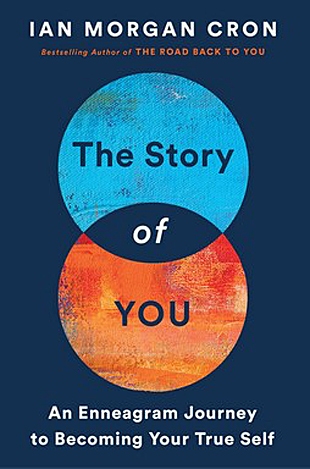The Enneagram has, over the last quarter century, become one of the most popular forms of self-guided spiritual direction and counseling. Its nine categories of personality typing — what Ian Cron in this book calls stories — are found by many today to be one of the most reliable methods for self-understanding.
An introductory chapter offers the reasons why we need this sort of device and help. In the author’s words, it is important to “recognize the myth of who you are.” Chapter 2 then offers the Enneagram as a tool for “changing your story.” Nine subsequent chapters present, one at a time, the nine types: The Improver, The Helper, The Performer, The Romantic, The Investigator, The Loyalist, The Enthusiast, The Challenger, and The Peacemaker.
The author reveals a lot of himself along the way, for instance: “I’m an Enneagram Four, which is just one of the nine basic types of the system. Called the Romantics, Fours are creative, imaginative people who are sensitive, empathic, and attuned to beauty and aesthetics. Sounds good, right? But, like all Enneagram types, they have a shadow side. In the Fours’ case, it includes moodiness, a fear of abandonment, and the belief that they’re irredeemably deficient, among other things.”
Each “type” is offered as having natural strengths and weaknesses. Every person has a “Passion” which can be overcome by a “Virtue.” Type by type, Cron offers assistance to each: The Improver needs radical acceptance; The Helper needs self-care; The Performer needs pause; The Romantic needs balance; The Investigator needs expansion; The Loyalist needs courage; The Enthusiast needs depth; The Challenger needs a revolution; and The Peacemaker needs an awakening. Every person has work to do, “deconstructing your old story to make room for a better one.”
Cron quotes a variety of experts from psychiatry and spirituality, including Carl Jung, Cynthia Bourgeault, Richard Rohr, Helen Palmer, and Rob Bell. He also quotes often from guests on his own popular podcast that is dedicated to Enneagram study and conversation, “Typology.”
His message is primarily a Christian one, even though the Enneagram is not natively Christian. Throughout the book, Cron encourages readers in this way: “Abandoning our old story and entering God’s Larger Story is arduous work. It takes time. You might be tempted to look back with regret on all the years you spent living your unhappy fiction and believing lies about yourself and the world that caused you and others pain. When this happens, remember the words of Maya Angelou, 'Forgive yourself for not knowing what you didn’t know before you learned it.' ”
